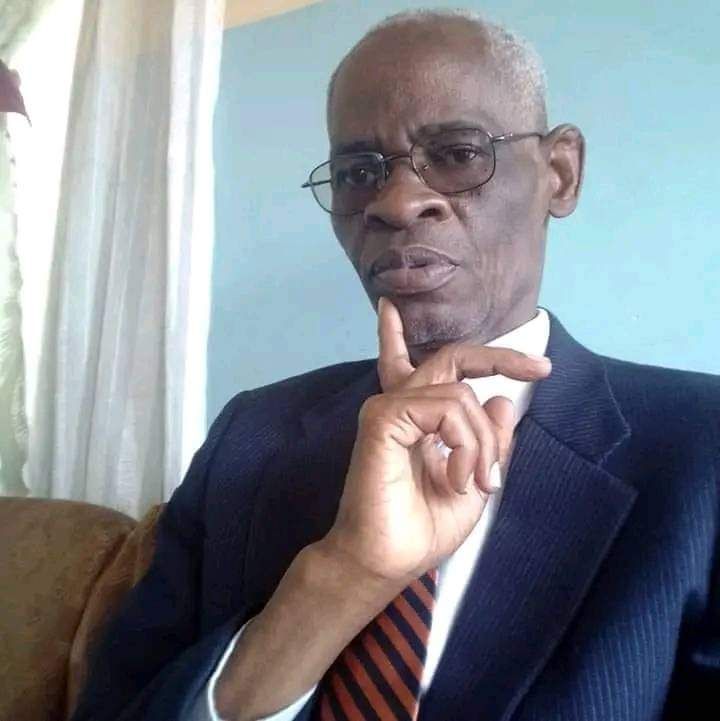By Twink Jones Gadama
Malawi’s recent incident involving President Lazarus Chakwera’s convoy has highlighted the urgent need for comprehensive civic education in the country. The lack of awareness about the procedures and protocols surrounding presidential convoys has led to misconceptions and misinformation circulating on social media platforms, further illustrating the necessity for informed citizens. Addressing this issue, Ken Msonda, a member of the DPP National Governing Council, shed light on the meticulous planning and coordination that takes place to ensure the safety and efficiency of presidential convoys.
In a recent speech, Msonda emphasized the critical role of civic education in creating a generation that understands and respects the laws and procedures governing the movement of the president. Failure to adequately civic educate both the young and the adults risks perpetuating ignorance and misunderstanding, jeopardizing the democratic functioning of the nation.
The controversy that unfolded on social media alleged that youth from Ndirande township had halted President Chakwera’s convoy due to a funeral procession en route to the HHI cemetery. The rumors further claimed that the president was compelled to disembark from his vehicle and offer condolences to the bereaved family, accompanied by a monetary donation of MK500,000.

To clarify these misconceptions, Msonda provided valuable insights into the operational mechanics of presidential convoys. He explained that each presidential convoy adheres to a meticulously detailed timetable, meticulously planned to ensure smooth and uninterrupted passage for the span of approximately one hour. The responsibility for managing these details falls on the police, who closely coordinate with relevant authorities to preempt and avoid any potential roadblocks.
Regarding the specific incident at hand, Msonda clarified that President Chakwera and his team were well aware of the funeral procession from Ndirande to HHI. Prior arrangements had been made for the president to pause briefly and offer condolences to the bereaved family. Msonda emphasized that if such an arrangement had not been made, the presidential convoy would have chosen an alternative route, bypassing the procession via Chirimba.
Msonda also highlighted that even during the tenure of former President Peter Mutharika, similar precautionary measures were taken. Ugly scenes and potential disruptions in Lilongwe prompted the presidential convoy to take alternative routes, detouring through Bunda, Gateway Mall, Area 49, Gulliver, the Interchange, Parliament, and finally arriving at State House. These measures ensured that the convoy was shielded from potential disturbances, demonstrating the impossibility of individuals stopping a presidential convoy.
However, Msonda’s clarifications raised questions about his mandate to shed light on the incident. Some wondered if it was the role of the presidential spokesperson or government security personnel to provide necessary information in such cases. Critics speculated about Msonda’s intentions, suggesting he sought personal favors from President Chakwera, while others believed he spoke out of his familiarity with the operational aspects of presidential convoys.
Regardless of the motivations behind Msonda’s remarks, it underscores the urgent necessity for an organized and unified approach to civic education. The responsibility to clarify such issues should be jointly shared by relevant government authorities, presidential spokespersons, and security personnel. By ensuring consistent and accurate information dissemination, citizens can be better equipped with knowledge regarding the functioning of presidential convoys and, in turn, enhance the democratic fabric of the nation.
In light of this incident, it is imperative that Malawi invest in robust civic education programs that empower individuals with a comprehensive understanding of the country’s laws and procedures. Such initiatives can help foster active citizenship, where citizens understand their rights, duties, and the processes involved in various aspects of governance. By educating the young and the adults alike, Malawi can build a future generation that is not only knowledgeable but also adept in upholding the democratic values that underpin the nation.
As the nation grapples with the aftermath of the misconceptions surrounding President Chakwera’s convoy incident, it is high time that relevant stakeholders collaborate to institutionalize civic education and promote awareness about the roles, responsibilities, and processes associated with the presidency. Through a cohesive and concerted effort, Malawi can pave the way toward a society that thrives on informed discourse, transparency, and accountability.
The incident serves as a wake-up call for Malawians to recognize the vital importance of civic education. By becoming active participants in their own democracy, citizens will play a crucial role in shaping the present and future of Malawi, ensuring peaceful coexistence, and upholding the principles of good governance.


